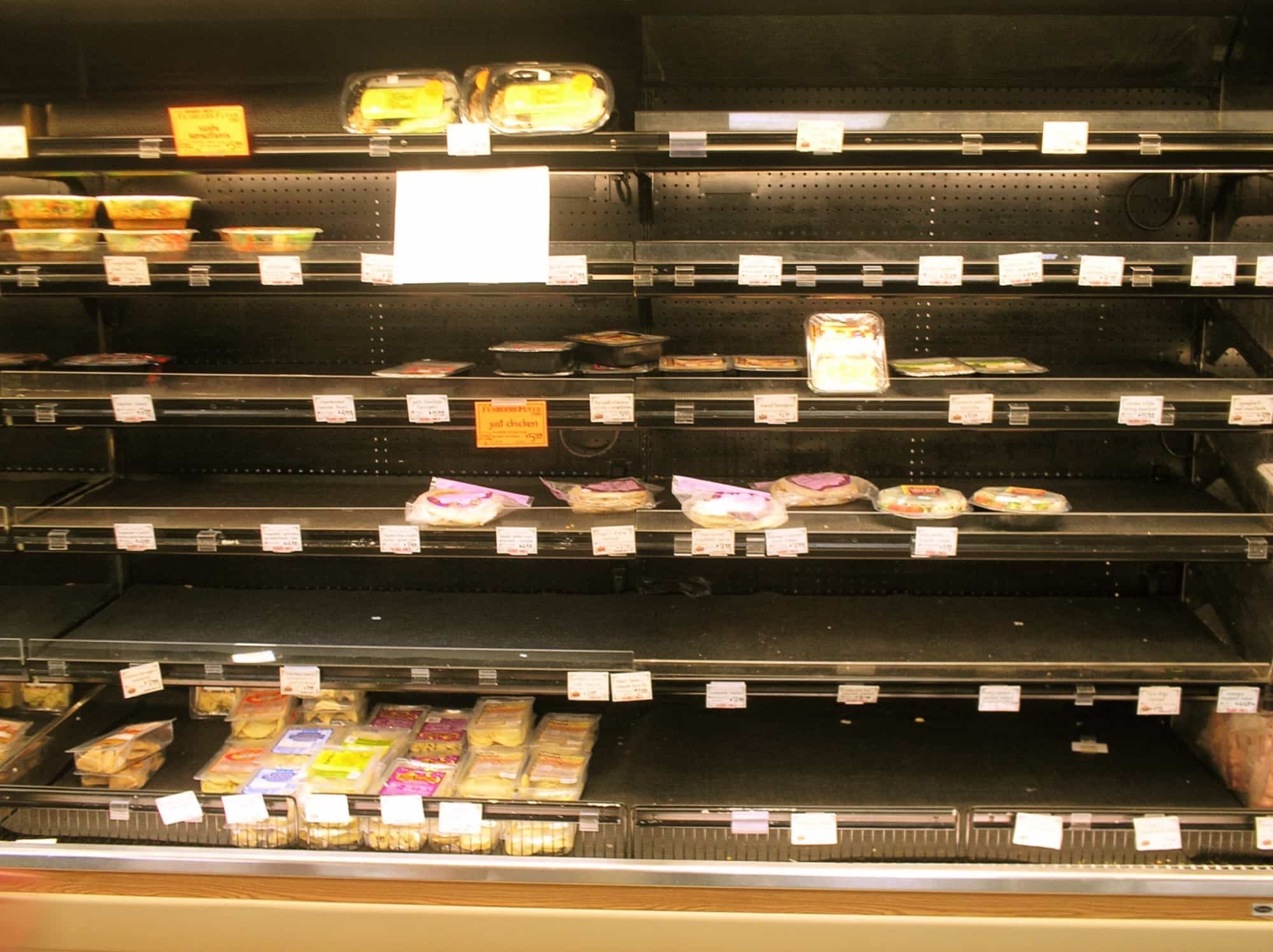A side effect of snowmageddon: food insecurity
The grocery store was out of my kind of butter—I Can’t Believe it’s not Butter was not going to cut it for the winter baking I had in mind. Fresh bread? Not a chance. Milk? My favorite brand had long ago been depleted.
Over the weekend, you may have experienced one or all of these scenarios. At the very least, you undoubtedly experienced long lines at the grocery store. Incredibly. Long. Lines.
“Food insecurity” is one of those terms that government entities and social workers use—that doesn’t always resonate. The actual Merriam-Webster definition means that someone is unable to consistently access or afford adequate food. Nationally, 1 out of 17 households are food insecure—which means that it may be something you (16 out of 17 households) can’t relate to.
Imagine that feeling of do I have enough to get me through being rooted in something more real—and constant—than an inconvenient snow storm. Do you have breakfast food to ensure your kids go to school ready to focus and learn? Do you have access to the nutritious food your teenager needs as he goes through another growth spurt? Should you pay the power bill—or buy more groceries? These are everyday things that people in poverty struggle with. In King County, one in ten families live in poverty. Yep, one in ten.
A few sobering facts:
- Three out of four food banks do not feel they can adequately meet the needs of their communities.
- 40% of food received by food banks is expired or about to expire, recent reports show—and it is most definitely thrown out.
- Foodbanks nationwide saw increases during the recent government shut-down. So many first-time food bank users were forced to rely on food banks to meet their nutrition needs until their paychecks were reinstated.
All this is a good reminder to be thankful for what we have—and that we should give our time and money when we can:
- Donate good healthy food to food banks (and not just the expired cans of food from your pantry—those aren’t good enough for your family and they aren’t good enough for the food bank).
- Donate cash. It allows food banks to buy exactly what they need for their specific population. And a donation to United Way helps break the cycle of poverty by helping families build their incomes to become financially stable.
- A high percentage of food banks and pantries don’t have much in way of paid staff. Volunteers are what makes it happen. Check local opportunities here.





Comments